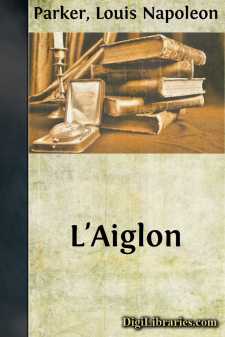Drama Books
Sort by:
by:
Ben Jonson
INTRODUCTION THE greatest of English dramatists except Shakespeare, the first literary dictator and poet-laureate, a writer of verse, prose, satire, and criticism who most potently of all the men of his time affected the subsequent course of English letters: such was Ben Jonson, and as such his strong personality assumes an interest to us almost unparalleled, at least in his age. Ben Jonson came of the...
more...
by:
John Dryden
INTRODUCTORY NOTE The age of Elizabeth, memorable for so many reasons in the history of England, was especially brilliant in literature, and, within literature, in the drama. With some falling off in spontaneity, the impulse to great dramatic production lasted till the Long Parliament closed the theaters in 1642; and when they were reopened at the Restoration, in 1660, the stage only too faithfully...
more...
Plays on the subject of Caius Julius are so numerous that some difficulty arises in properly distinguishing the titles. In the case of the piece here reprinted the first title, which is also the head title, suggests a play of Chapman’s, while the running title is the traditional property of William Shakespeare. It seems, therefore, best that it should become known by the name which appears second on...
more...
by:
Upton Sinclair
ACT I [JULIA PATTERSON'S apartments in a model tenement on the lower East Side. The scene shows the living-room, furnished very plainly, but in the newest taste; "arts and crafts" furniture, portraits of Morris and Ruskin on the walls; a centre table, a couple of easy-chairs, a divan and many book-shelves. The entrance from the outer hall is at centre; entrance to the other rooms right and...
more...
MEMORANDUM The Sacred Legends touched by this Trilogy would be familiar, in outline, to the Auditors: e. g.: The woes of the House of Atreus: the foundation of them laid by Atreus when, to take vengeance on his brother Thyestes, he served up to him at a banquet the flesh of his own sons; His grandsons were Agamemnon and Menelaus: Menelaus' wife, Helen, was stolen by a guest, Paris of Troy, which...
more...
GEORGE HENRY BOKER (1823-1890) The name of George Henry Boker suggests a coterie of friendships—a group of men pledged to the pursuit of letters, and worshippers at the shrine of poetry. These men, in the pages of whose published letters and impressions are embedded many pleasing aspects of Boker's temperament and character, were Bayard Taylor, Richard Henry Stoddard, and Charles Godfrey Leland,...
more...
THE FIRST ACT At Baden, near Vienna, in 1830. The drawing-room of the villa occupied by Maria Louisa. The walls are painted al fresco in bright colors. The frieze is decorated with a design of sphinxes. At the back, between two other windows, a window reaching to the ground and forming the entrance from the garden. Beyond, the balustrade of the terrace leading into the garden; a glimpse of lindens and...
more...
by:
Ben Jonson
INTRODUCTION THE greatest of English dramatists except Shakespeare, the first literary dictator and poet-laureate, a writer of verse, prose, satire, and criticism who most potently of all the men of his time affected the subsequent course of English letters: such was Ben Jonson, and as such his strong personality assumes an interest to us almost unparalleled, at least in his age. Ben Jonson came of the...
more...
by:
Henrik Ibsen
A DOLL'S HOUSE ACT I (SCENE.—A room furnished comfortably and tastefully, but not extravagantly. At the back, a door to the right leads to the entrance-hall, another to the left leads to Helmer's study. Between the doors stands a piano. In the middle of the left-hand wall is a door, and beyond it a window. Near the window are a round table, armchairs and a small sofa. In the right-hand...
more...
by:
Oliver Goldsmith
Excuse me, sirs, I pray—I can't yet speak—I'm crying now—and have been all the week."'Tis not alone this mourning suit," good masters:"I've that within"—for which there are no plasters!Pray, would you know the reason why I'm crying?The Comic Muse, long sick, is now a-dying!And if she goes, my tears will never stop;For as a player, I can't squeeze...
more...











